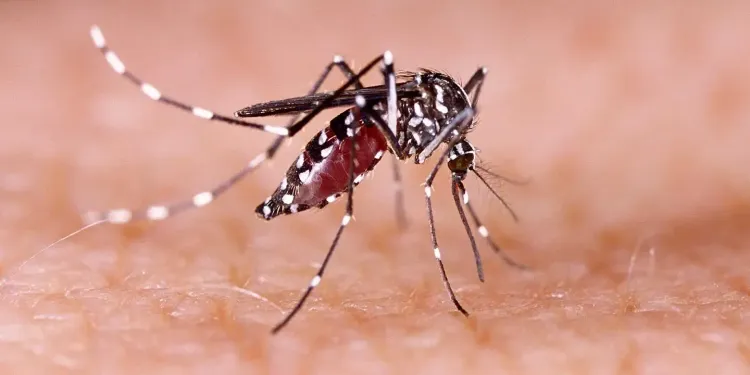What are the latest dengue statistics in Bangladesh?

Synopsis
Key Takeaways
- 814 new dengue cases reported in the last 24 hours.
- Total cases in 2025 stand at 61,605.
- 253 deaths attributed to dengue this year.
- 14,263 cases recorded in October alone.
- Dengue now spreading beyond its usual season.
Dhaka, Oct 22 (NationPress) In the last 24 hours, Bangladesh has seen 814 new cases of dengue fever, as reported by the Directorate General of Health Services (DGHS) under the Ministry of Health.
With the latest infections confirmed by 8 a.m. local time on Tuesday, the total number of dengue cases in Bangladesh has reached 61,605 this year, according to the DGHS.
During the same timeframe, four individuals succumbed to the mosquito-borne infection, raising the total number of dengue fatalities this year to 253, as stated by the DGHS.
In October alone, 14,263 cases have been documented, following 15,866 infections in September, as confirmed by the DGHS.
So far in October, there have been 55 deaths, while September recorded 76 deaths and August 39, according to the DGHS.
Typically associated with the monsoon season in Bangladesh, dengue fever is now extending beyond its usual June to September timeframe, as reported by Xinhua.
Dengue is a viral disease transmitted from mosquitoes to humans, predominantly found in tropical and subtropical regions.
While many individuals infected with dengue show no symptoms, those who do may experience high fever, headaches, body aches, nausea, and rashes. Most recover within 1 to 2 weeks, but severe cases may require hospitalization.
In critical situations, dengue can be lethal. To mitigate your risk, it is essential to avoid mosquito bites, particularly during the day. Currently, there is no specific treatment for dengue; management focuses on alleviating pain.
The global incidence of dengue has surged in recent years, with reported cases rising from 505,430 in 2000 to 14.6 million in 2024, according to the WHO. Most cases are mild or asymptomatic, leading to underreporting. The disease is now endemic in over 100 countries.
In 2024, a record number of dengue cases were documented, affecting more than 100 countries across all continents. This year, ongoing transmission coupled with an unexpected increase in cases resulted in over 14.6 million reported cases and more than 12,000 dengue-related deaths. The Americas region contributed significantly to this burden, with over 13 million cases reported to the WHO.










